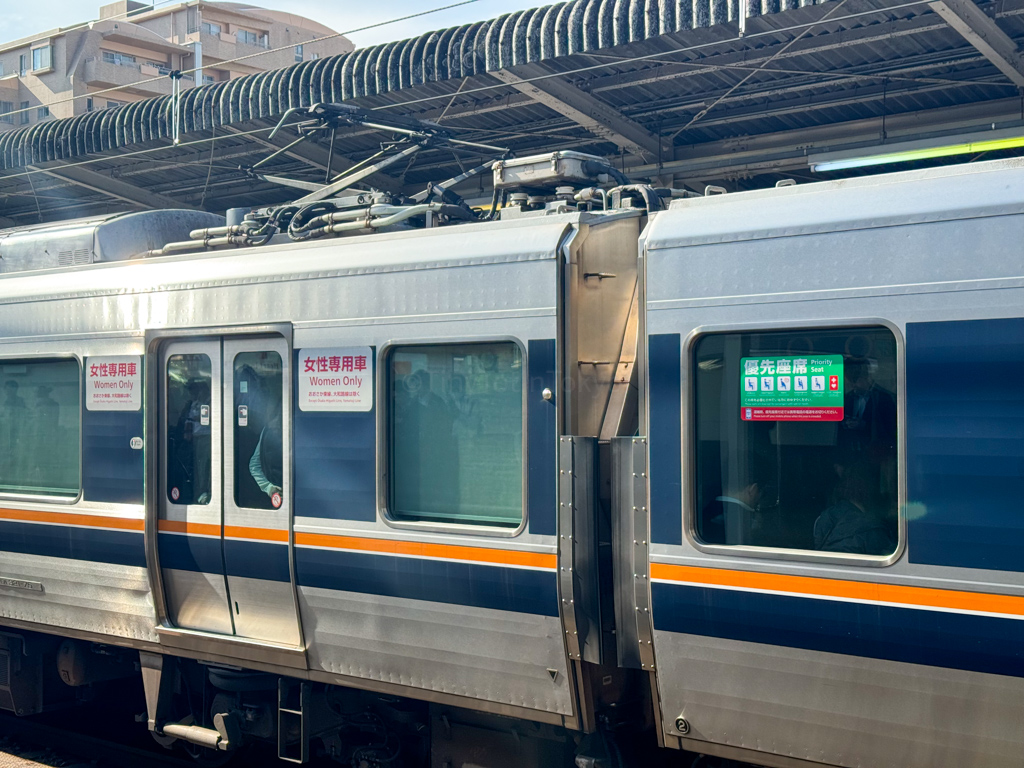Strange Things About Japan: Cultural Differences

Last Updated on July 24, 2025 by Kay
This post may contain affiliate links, meaning I may earn a small commission on any purchases through those links at zero additional cost to you. Whatever I make goes to keeping this website running and I am forever grateful for the support. See my Privacy Policy for more information.
As a Canadian who has been living in Japan for more than fifteen years, I’ve gotten used to a lot of cultural differences I’ve encountered over time. But there are still some things I find strange compared to my own country.
It’s funny because social media likes to paint Japan as a place that’s living in the future, and in some aspects, it certainly is! However, in other ways, Japan is very much stuck in the past.
This article isn’t meant to disparage Japan in any way (after all, my husband and child are both Japanese). In fact, some of these strange things are quite good. I simply thought these observations from a Canadian would be interesting to share.
Table of Contents
- The Continued Use of Fax Machines
- Kids Cleaning Schools
- Slurping Food is Good
- Pushing People Onto Trains is Good
- Groping On Trains — Obviously Not Good But A Thing
- Upskirt Photos Are A Thing
- Naked Bathing in Hot Springs
- Epidurals Aren’t a Thing
- Seasonal Allergies Are Intense
- Otoshi, The Appetizer You Didn’t Want
- No Tipping!
- No Soap and Not Washing Hands
- Rules Are Rules
- Dryers Aren’t Common
- Rampant Plastic Use
- Love Hotels
- Abandoned Houses
- Mukade, The Insect Made of Nightmares
The Continued Use of Fax Machines
Believe it or not, fax machines are still a thing in Japan. Sometimes you’ll only be able to send documents to an organization using fax, which has always been wild to me, especially nowadays.
I believe they’re getting slowly phased out, but the key word here is “slowly.”
Kids Cleaning Schools
When I first moved to Japan, I worked as an Assistant Language Teacher through the JET Programme. This gave me an inside look into school life in Japan, and I was shocked to see that at the end of every school day, students cleaned the school!
There was no janitor, it was up to the students to make sure everything was spick and span. The teachers helped out as well, but the majority of the work was done by the kids.
Initially, I wasn’t sure how to feel about this (my husband, a Japanese national, likes to joke that it’s “child labor”), but now I believe it’s a good thing. Kids are less likely to make a mess because ultimately they will be responsible for cleaning it. They also learn how to work with each other daily to complete a task.
My daughter is in kindergarten, and at the end of every school year, she cleans her classroom with her fellow students. She has never complained about it, and at home, she knows if she makes a mess, she needs to clean it up.
Slurping Food is Good
In the West, we’re taught that it’s rude to slurp your food. Actually, you should try not to make any noise when you’re eating because it’s impolite. (Or at least that’s what I was taught.) So when it comes to ramen, we quietly eat our noodles and silently sip the broth.
However, in Japan, you should show your appreciation to the cook by doing the complete opposite! Slurp those noodles and the soup as loudly as possible to relay that it’s delicious and you love it. This goes for beer as well.
Pushing People Onto Trains is Good
This is a very Tokyo thing, but during rush hour, especially along the Chuo Line, train station attendants will actually push commuters onto packed trains so they can all fit inside. Trains can be so packed that people will faint because of it.
Some people will push themselves onto trains as well, although sometimes, if there’s absolutely no room, the people already on the train will push hopeful passengers off.
Groping On Trains — Obviously Not Good But A Thing
Speaking of crowded trains, the more crowded it is, the easier for awful people to take advantage of others. People are sometimes groped on packed trains, especially if they’re standing up. In fact, according to a recent survey, about 56% of women in Tokyo have been groped on a train! This is why there are women-only cars on trains.
And it’s not only women, 15% of men have been groped as well. How terrible is that?!
The silver lining is that gropers who are caught are taken straight to the police station, and other passengers are more than willing to call out and help stop them.
Upskirt Photos Are A Thing
Japan is relatively safe, but something surprising to me was the number of upskirt photo crimes.
Basically, some men put smartphones underneath the skirts of women and take nonconsensual photos, sometimes even videos. This is especially common on trains and on escalators. And shockingly, some people who do this are police officers or government officials!
Due to this, I always wear shorts under short skirts and make sure my daughter does as well.
Naked Bathing in Hot Springs
I think South Korea might be the only other country where bathing naked in onsen (hot springs) with strangers is a favorite pastime for locals.
Actually, I really love onsen, especially when staying at a ryokan, so although it was weird to me at first, I quickly learned to love it.
And thankfully, the baths are gender separated, and everyone respects your privacy. I’ve never been stared at despite looking very different from the locals.
Epidurals Aren’t a Thing
Although it’s becoming more common (Tokyo will cover all epidurals starting this year!), epidurals are still not widely available at hospitals and birth clinics in Japan. I cover this in more detail in my article on surprising things about giving birth in Japan.
Seasonal Allergies Are Intense
I never experienced seasonal allergies, specifically hay fever, until I moved to Japan. Hay fever is called kafunsho in Japanese and is caused by the pollen from cedar trees.
Due to deforestation caused by the Second World War, many cedar trees were planted in Japan. However, these trees release a lot of pollen, which is becoming worse every year due to rising temperatures caused by climate change.
Now, about half of the population in Japan suffers from hay fever, which results in sneezing, itchy eyes and throats, and overall misery. In spring, I can’t go outside without taking allergy medicine, while my husband always wears a mask and has had to invest in special glasses that help keep pollen out of his eyes.
Otoshi, The Appetizer You Didn’t Want
When I first visited Japan, I was surprised by the concept of otoshi. This is when a small appetizer is given to each customer at an izakaya and some restaurants in exchange for about 300 to 500 per person.
You can’t choose the appetizer, so sometimes I find I can’t eat it because it contains something I don’t like, such as raw squid, which feels like a waste.
Otoshi is a tradition that’s nationwide in Japan and far more common at izakaya than restaurants. It’s also usually only served to patrons who are drinking alcohol.
I don’t mind paying otoshi, though, since tipping isn’t a thing in Japan. This brings me to my next point…
No Tipping!
I was pleasantly surprised that there is no tipping in Japan. In Canada, I’ve watched tipping go from 10% all the way to 20% and even higher. There’s almost none of that in Japan, although sometimes restaurants will charge a service fee of around 10%. This is very rare, though.
When I first visited Japan, my travel companion insisted on tipping at a restaurant. She left her tip on the table even though I told her not to, and we headed on our way. However, one of the staff ran after us and gave the money back. So even if you want to tip, you’ll be causing more trouble for the staff.
Some cafes in Japan have tip jars, and if you order using a delivery app such as Uber Eats, there’s a tip option. But this is as far as tipping goes in Japan.
No Soap and Not Washing Hands
When I first moved to Japan back in 2009, it was next to impossible to find a washroom that carried hand soap, and it shocked me. How do you wash away viruses?!
This has improved considerably over the years, and usually, only old facilities don’t have soap, thankfully.
However, sometimes people don’t wash their hands either, or don’t use soap when it’s right there. Actually, I’ve seen this more often than not, and I’m not going to lie, I find it gross.
This isn’t to say this is necessarily cultural, but it’s certainly something I’ve noticed. I don’t get it and I can’t really ask anyone about it other than my Japanese husband (who thinks it’s not a big deal) because it would be offensive.
Now, I haven’t lived in Canada for a while, but I don’t recall seeing people leave the washroom without washing their hands. Maybe I’m from an especially clean province, I don’t know. Maybe things have changed over the years.
Similarly, some washrooms still don’t have hand dryers, so you need to carry a small towel around to dry your hands. I’m terrible when it comes to remembering this and just dry my hands on my pants like a heathen.
Rules Are Rules
Japan can be very inflexible when it comes to bending the rules. For instance, if you’re at a restaurant and want to omit something or substitute it, there’s a good chance you’ll be told it can’t be done.
Even if something doesn’t make sense and it seems like the small request you’re asking isn’t a big deal, I’ve found that most of the time there’s no use arguing about it because nothing can be done. (I also don’t want to seem like a troublesome foreigner.) This isn’t to say you shouldn’t try, but don’t keep insisting or take it personally if you’re repeatedly told “no can do”.
Dryers Aren’t Common
I remember being shocked when I moved to Japan and learned that I didn’t have a dryer and would have to hang my clothes to dry. (My washing machine was also outside on the balcony, another shock to me.)
People in Japan love hanging their clothes to dry, so although dryers are available (very small compared to Canadian ones), as well as washer-dryer combos, they don’t purchase them. As a Japanese friend once told me, the clothes smell nice and fresh when you hang them outside. (Although I’m not sure how this works in spring when pollen is everywhere, but anyway…)
Hanging clothes outside to dry is eco-friendly, cost-effective, and clothes stay in better condition and last longer when they aren’t put through a dryer, so I can see the benefits.
Rampant Plastic Use
Japan loves one-use plastic.
Take souvenirs, for example. Cookies will be individually wrapped so they’re easier to share with other people, especially at workplaces.
I get it, but sometimes it’s too much. For instance, sometimes a single banana at a convenience store will be wrapped, and I just don’t see the point.
If you’re environmentally conscious, the plastic use in Japan might really shock you.
Love Hotels
After first moving to Japan, I remembered seeing lots of flashy hotels, especially along the highway. They looked pretty interesting but I had no idea what they were until a friend told me — love hotels!
Love hotels are places that guests can stay for as short as one hour to as long as a day to… do the deed. Yup, Japan has hotels dedicated only to getting down and dirty.
I’m not going to lie, I’ve stayed at a few love hotels back in the day. It was fine at the time but now that I’m older, I can’t help wondering about what horrors a blacklight would find.
Abandoned Houses
In rural areas that are hard to get to, you’re likely to find akiya, which are unoccupied houses that no one wants because of all the downsides. These houses usually need a lot of work, are located in the middle of nowhere, and sometimes you can’t even sell them.
But due to these drawbacks, they’re very cheap, sometimes even free!
I wouldn’t buy one, though, especially because when you live in rural Japan, you’re likely to encounter mukade.
Mukade, The Insect Made of Nightmares
In Canada, we have tiny insects. Well, tiny in comparison to insects in Japan, which look like they came out of a kaiju monster movie from the 60s.
The worst of them all is mukade, which is a centipede made of nightmares. It’s large, ranging from about 7 cm to 13 cm, and its bites hurt. In fact, you can even die from a mukade bite! Worst of all, they come in pairs, so if you see one, there’s another one lurking somewhere.
I still remember my friend showing me the outline of a mukade on his apartment ceiling, the only remnant of it after he sprayed it with a foam insecticide and then peeled it off. Eww.

